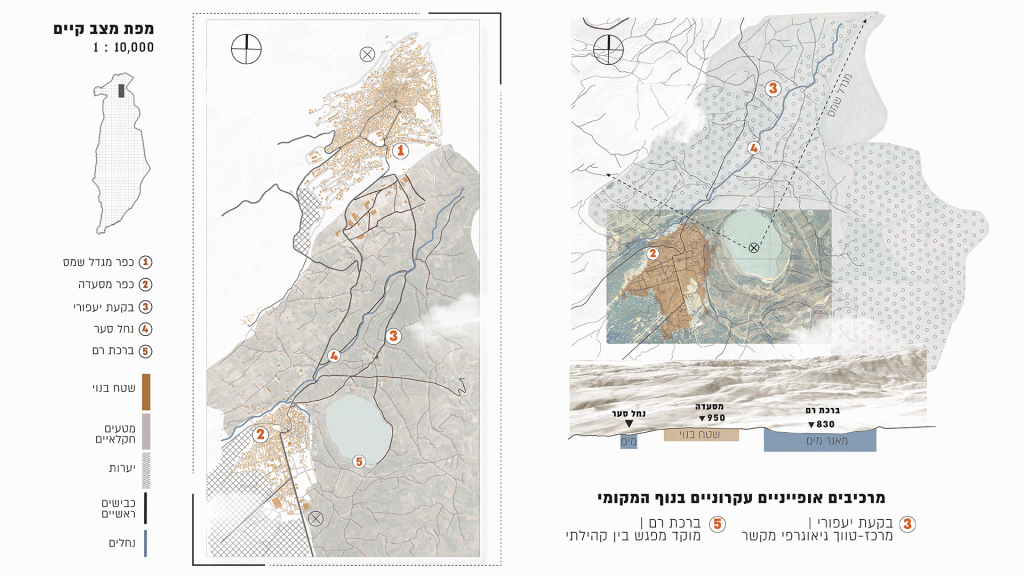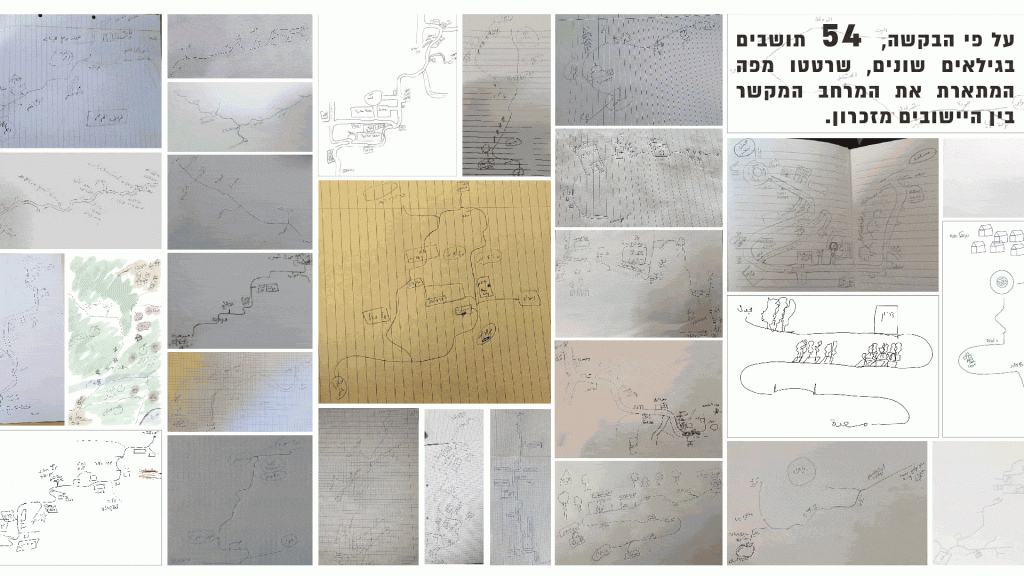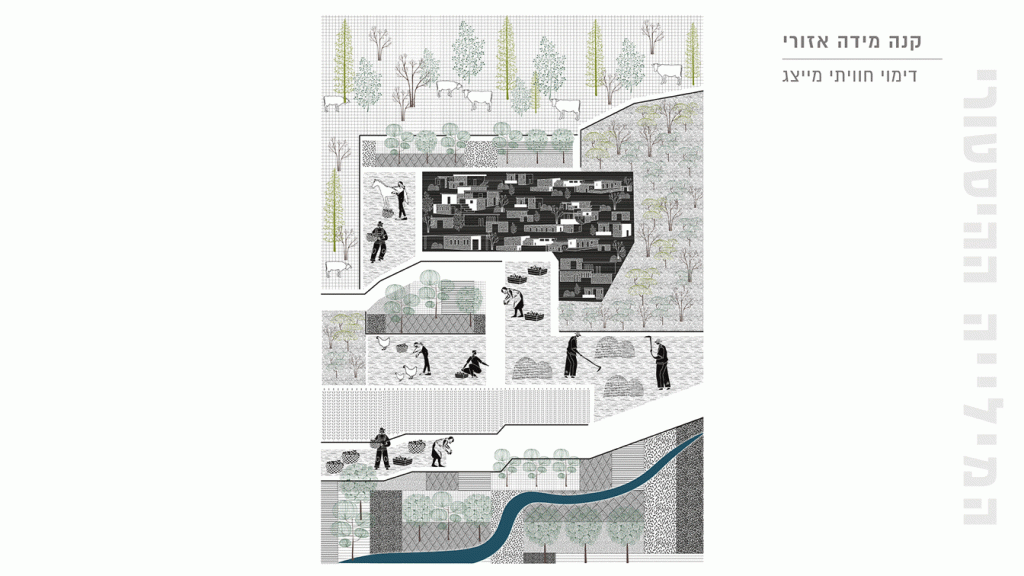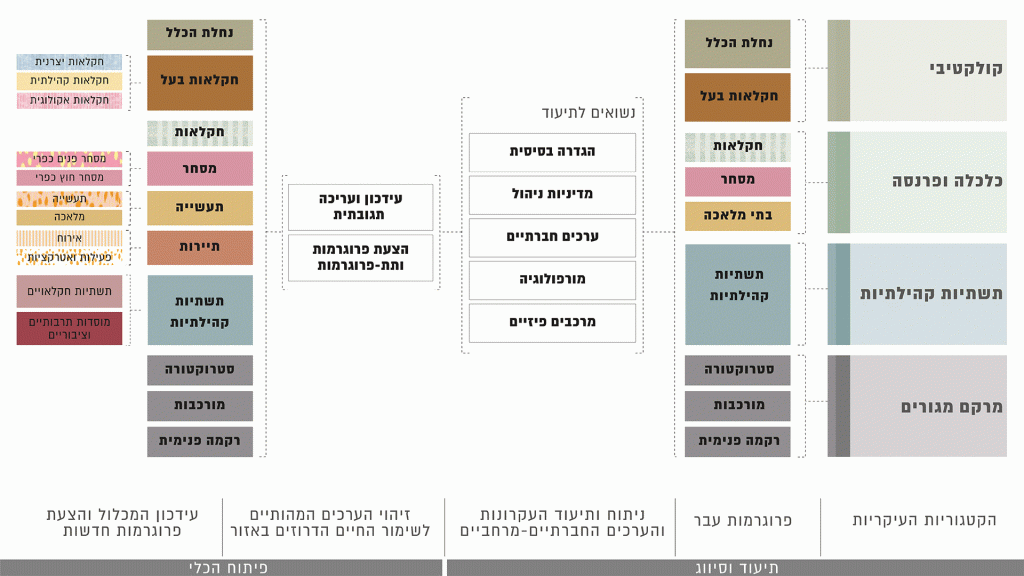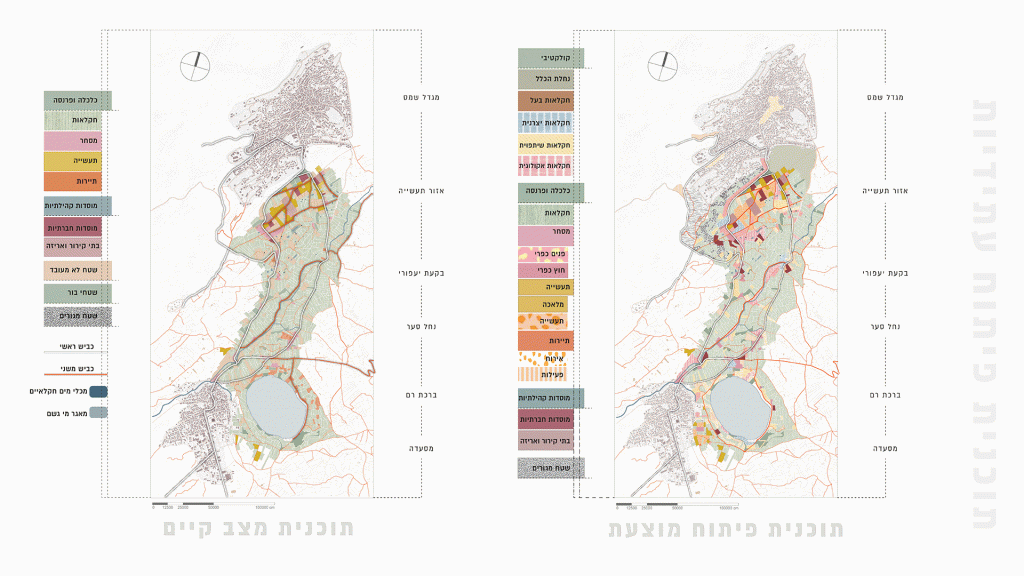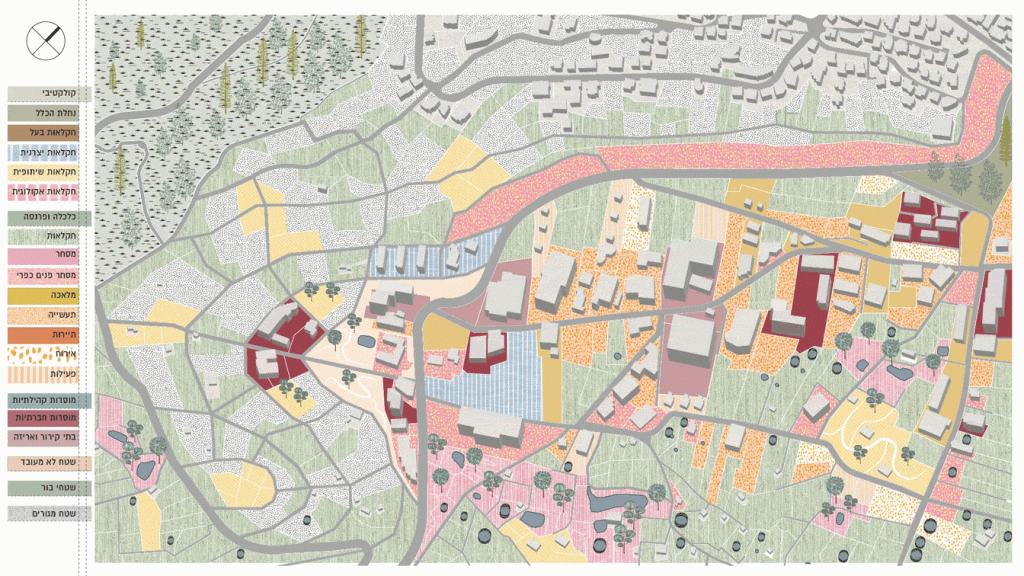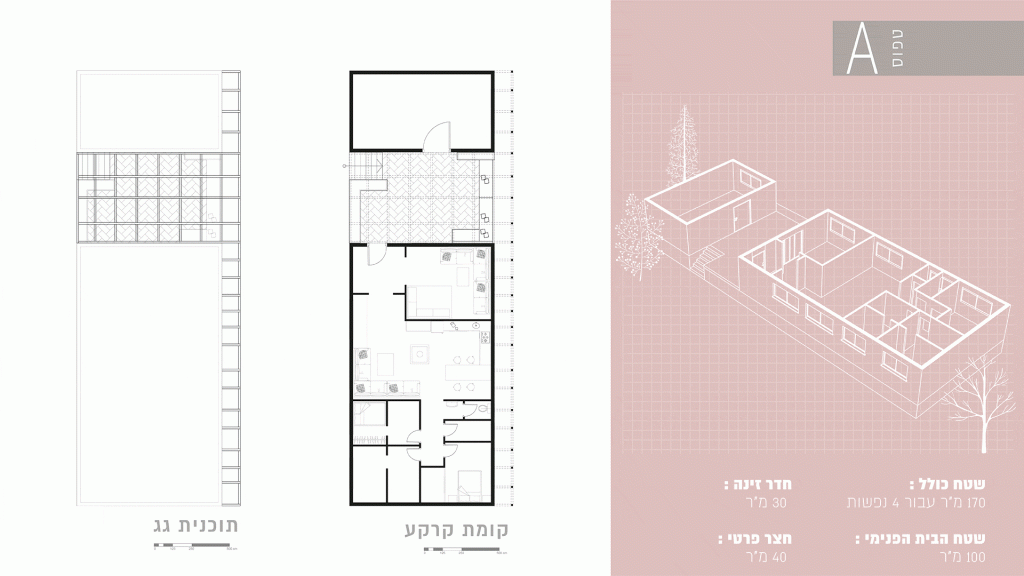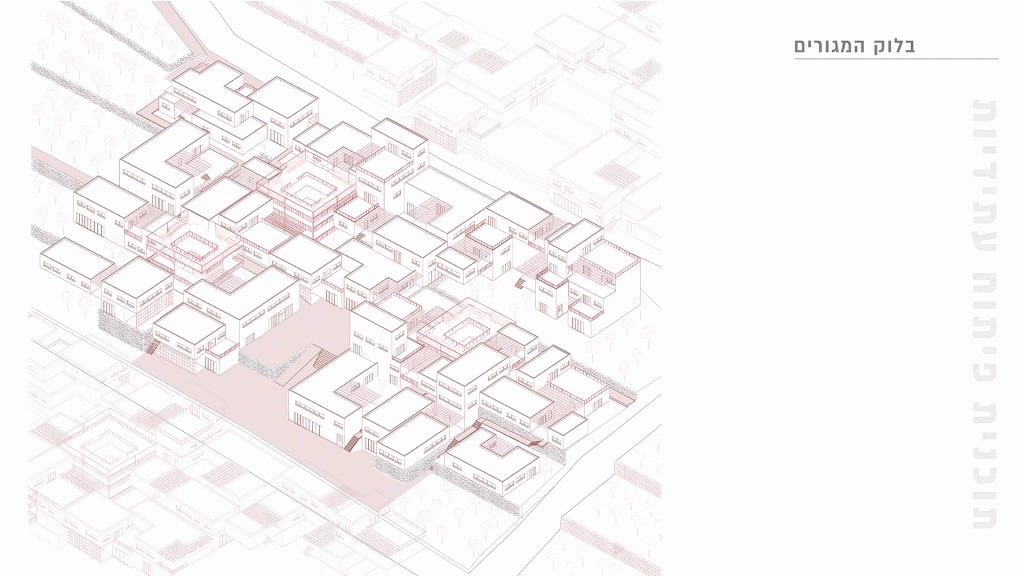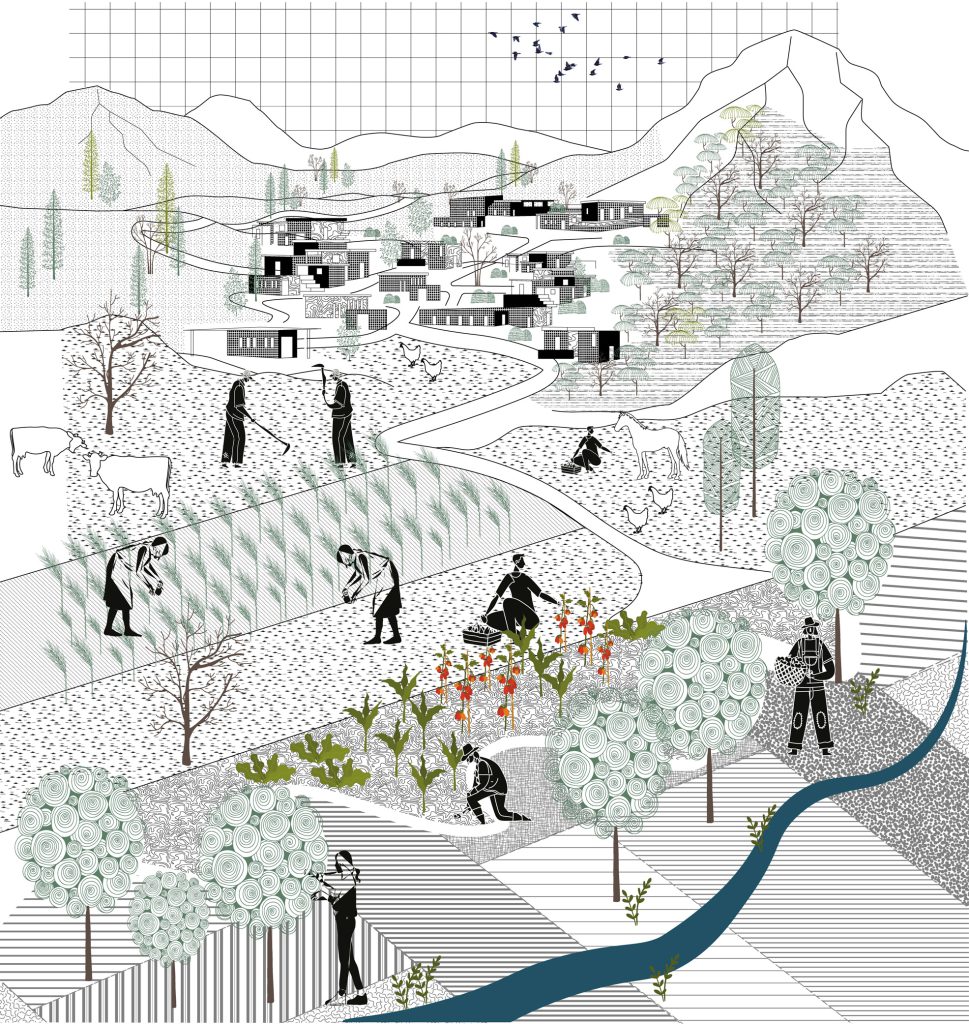
MILIEU Development and planning of the socio-cultural landscape in Golan Heights
The project offers a planning approach based on analysing and re-editing socio-cultural and spatial values. This approach enables the development of sustainable and resilient planning for local culture in its environment.
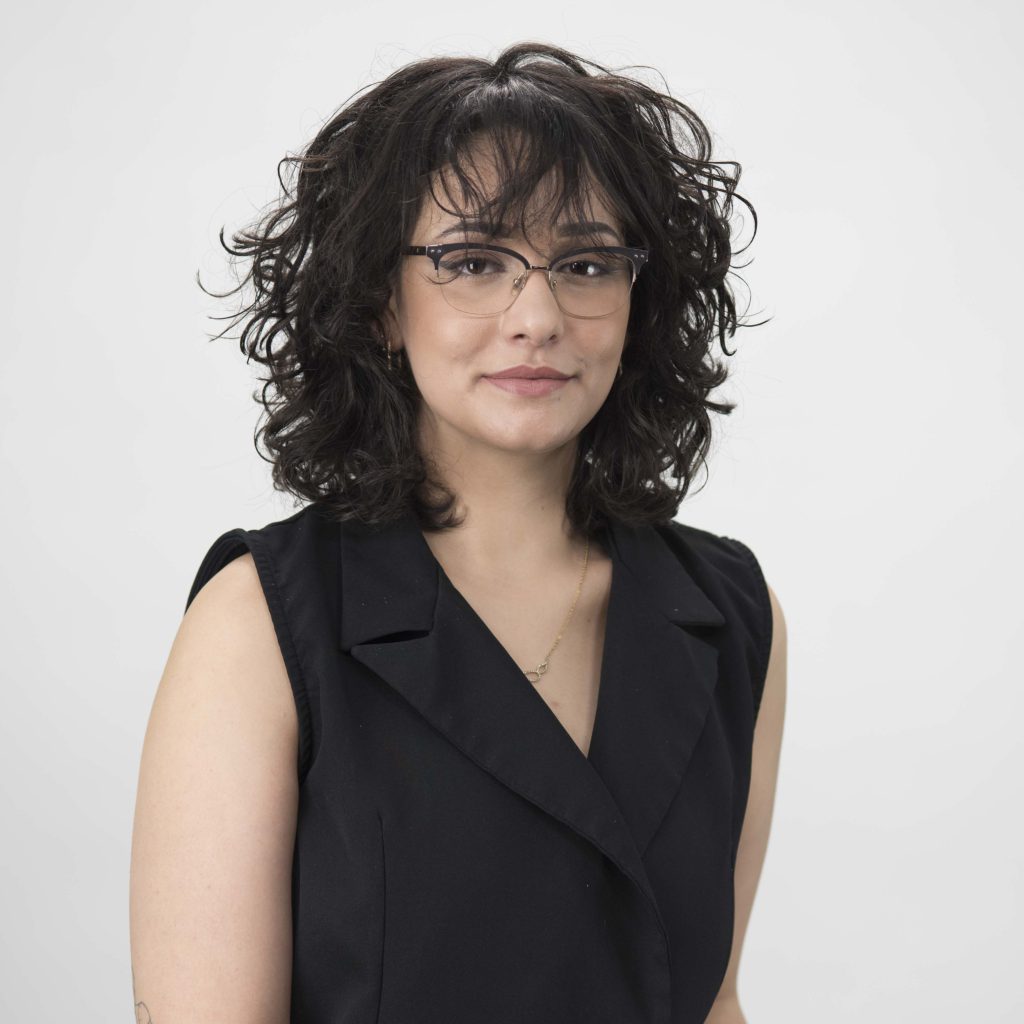
Balsam Abu Saleh
Technion – Israel Institute of Technology
The project highlights a gap in the Druze villages of the Golan Heights between the institutional design approach, which is based on professional-modern knowledge, and the way that the local community lives and perceives the area. The gap is reflected in a development and planning outline, inconsistent with the region’s values, distorts the existing social fabric, and disrupts the economic way of life.
The project proposes an ethical approach for continuous future planning, based on the term “milieu”, which describes the relationship between society, space, and landscape. This approach identifies and understands the existing sociocultural, economic, and spatial values, and creates a dialogue between local-indigenous knowledge and planning-professional knowledge. Focusing on two northern villages, Masada and Majdal Shams, the project offers a method for social-spatial analysis that uses understanding the community’s spatial consciousness as a basis for developing future planning. Furthermore, the analysis method enables the development of instruments to document the region’s socio-spatial principles and values. This instrument acts as a mapping framework and a working tool for rethinking possible future programs and spaces.

